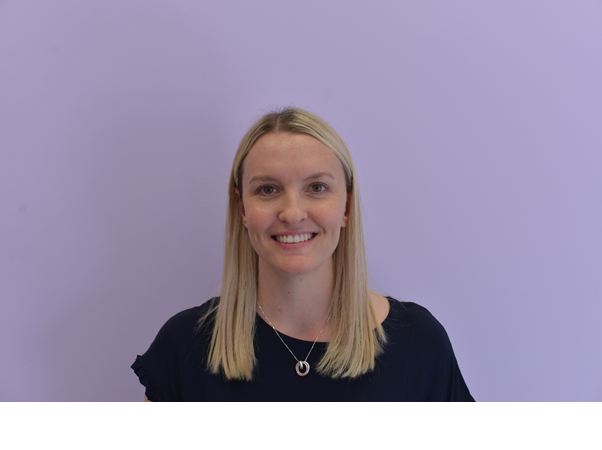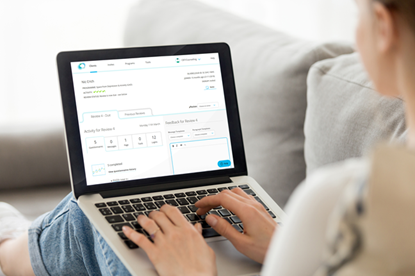
DHC Talking Therapies
Top tips on looking after our mental wellbeing
Talking Therapies are proven to be effective in managing the types of mental health problems people may be experiencing during the coronavirus outbreak. Amy O’Connor, Clinical Lead, Cognitive Behavioural Psychotherapist at DHC Talking Therapies has kindly shared her top tips below to help us all look after our mental health.
People in Surrey can get free help for stress and anxiety via their own computer at home with DHC Talking Therapies. Everyone going through online therapy will be supported by a therapist over the phone and on email. The service is free, confidential and available on the NHS if you are registered with a Surrey GP and aged 18+. You can ask your GP to register or self-refer.
Develop a routine
For many of us, daily routines will have changed and creating a new routine is of utmost importance as it provides structure and purpose. Make a daily planner, with different activities scheduled over the course of the week.
Types of activity
We suggest a balance between routine, pleasurable and necessary behaviours.
Top tip: set daily goals to provide a sense of achievement – try looking at things you have always put off at home (clearing out cupboards, DIY).
Be mindful: If you live in a busy household, try to find moments where you can spend time focusing on you and your own needs.
Adapting activity
Whilst you are at home and especially if you are self-isolating, think about creative things you can do; is there something you want to make for example? Could you learn a language online? Could you try an exercise video? Could you do ‘movie nights’ or play board games?
Consider your values
Think about what is important to you and set small goals towards this.
Focus on what you can rather than what you cannot control
It can become easy to fall into catastrophic patterns of thinking and to make predictions about what might happen. It is really important that we all ground ourselves in the present moment and focus on what we can actually control.
Ask yourself these questions
Q: What can I actually do about this right now?
Q: Is this helpful for me to focus on right now? Am I gaining anything from this?
Q: Is this actually within my control?
Q: What factual evidence do I have to say this is true or untrue right now?
Q: What would I rather be doing with this time?
Stay appropriately informed
Rumours and speculation may fuel anxiety, instead follow advice from reputable sources such as the Government Website or NHS UK website.
Try to manage how you follow the media
There is extensive news coverage of the outbreak, which is important to keep us informed. If you are finding this is causing you distress, try to achieve a balance by limiting your intake. For example, you could watch/check the news once a day and avoid checking social media for updates. You could also mute notifications or unfollow hashtags or accounts.
Stay connected
It is important to offer and receive support in times of stress. Try to keep in touch with family and friends by telephone, Skype, text messages or social media when face to face contact is not possible.
Create a ‘gratitude’ journal and practice ‘acts of kindness’
At the end of every day, think of one thing you are grateful for. Try to do one ‘act of kindness’ a day, this could be calling a friend or family member, making someone a cup of tea, putting some food out for the birds, checking in with a neighbour.
Try to anticipate distress
During infectious disease outbreaks like Coronavirus it is normal to feel scared and vulnerable. It is important to be aware of these feelings and the impact on our mental health. We should avoid increasing habits such as smoking and drinking which may not be helpful in the long term. Identify the triggers that make you feel low or anxious and look for ways to reduce or manage them.
Take care of yourself
Eat and drink healthily with plenty of fruit, vegetables and water to support your immune function and energy levels.
Avoid staying still for too long
Exercise and regular movement will maintain fitness and strength. If you are working from home, take breaks and eat away from your ‘desk.’ Continue to access sunlight and nature where possible, at a safe distance from others.
AnxietyUK suggests practising the ‘Apple’ technique to deal with anxiety and worries:
Acknowledge Notice and acknowledge the uncertainty as it comes to mind.
Pause Don’t react as you normally do. Don’t react at all. Pause and breathe.
Pull back Tell yourself this is just the worry talking, and this apparent need for certainty is not helpful and not necessary. It is only a thought or feeling. Don’t believe everything you think. Thoughts are not statements or facts.
Let go Let go of the thought or feeling. It will pass. You don’t have to respond to them. You might imagine them floating away in a bubble or cloud.
Explore Explore the present moment, because right now, in this moment, all is well. Notice the ground beneath you. Look around and notice what you see, what you hear, what you can touch, what you can smell. Right now. Then shift your focus of attention to something else – on what you need to do, on what you were doing before you noticed the worry, or do something else.
The Apple Technique:
- Acknowledge
- Pause
- Pull back
- Let go
- Explore
Coronavirus (Covid-19) and Your Wellbeing
Seeking professional support in Surrey
NHS IAPT services such as DHC Talking Therapies offer telephone, online and video based therapy for those over 18. You can self-refer for this. DHC Talking Therapies and other IAPT services offer online treatment with SilverCloud which is based on Cognitive Behavioural Therapy (CBT) with the support of a therapist via phone/email.
Age UK and Silverline have telephone support services available for older adults.
There is a service called ‘Mindful’ for those aged 16-25 in Surrey.
Young people also have access to Kooth online for mental health support.
Visit Healthy Surrey for lots more information
For those experiencing suicidal thoughts or those in crisis
You can contact the Samaritans on 116 123 (this is free and available 24 hours a day) If you are in distress or in a crisis and need immediate help, you should call the Surrey Mental Health Crisis Line on 0800 915 4644 or use the Shout Crisis Text Line: Text Shout to 85258.
DHC Talking Therapies
Tel: 01483 906392








